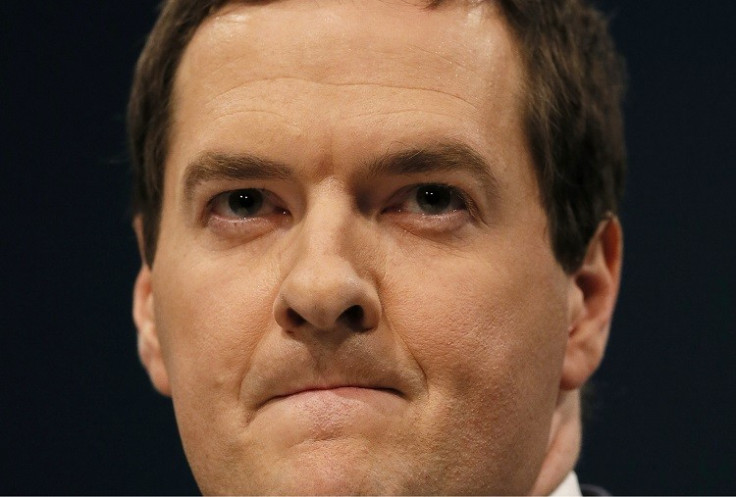George Osborne: RBS Privatisation Unlikely Before 2015 General Election

UK Chancellor George Osborne said it is unlikely the Royal Bank of Scotland will be privatised before the next general election in 2015, despite the state-backed institution stepping up efforts to cleanse itself of toxic assets.
Speaking to BBC Radio 4's Today programme, Osborne added that while taxpayers will not get their money back immediately, "hopefully, eventually, we will get our money back."
RBS has created an internal "bad bank" into which it has hived off £38bn (€45bn, $60.8bn) of its dodgy assets, built up before its near collapse during the financial crisis. Over two years, RBS will put between 55-75% of its toxic assets into the bad bank.
"Dealing with these assets now will strengthen our capital position, and speed recovery in our core business and the path to privatisation," said RBS in a statement.
"It will also remove distractions that have taken so much management time in recent years, stopping us concentrating fully on the customer.
"It will have strong, transparent governance through a board sub-committee that reports regularly to the main board."
Since 2008, RBS has wound down £220bn of its non-core assets from £258bn.
During the third quarter of 2013, RBS posted a pre-tax loss of £643m, after taking a £496m accounting charge for an improvement on its own credit.
Osborne has been eyeing a sale of RBS, which is 81% owned by the UK taxpayer after a £45bn bailout, as soon as possible. Pressure to return RBS to the market intensified after the government sold off 6% of its stake in Lloyds Banking Group, which was also backed by taxpayers after a financial crisis bailout. The UK government retains a 32.7% stake in Lloyds.
In June, the RBS Chief Executive Stephen Hester quit his role amid speculation that he was pushed by Osborne. The chancellor denied having a hand in Hester's ousting, which is said to have been over the RBS boss's lack of support for the government's banking reforms.
RBS said Hester had overseen the first phase of the bank's transformation through its balance sheet reforms, but the board wanted someone new to manage the second phase - reprivatisation.
Ross McEwan, the ex-chief of the Commonwealth Bank of Australia, was named as Hester's replacement.
© Copyright IBTimes 2025. All rights reserved.






















